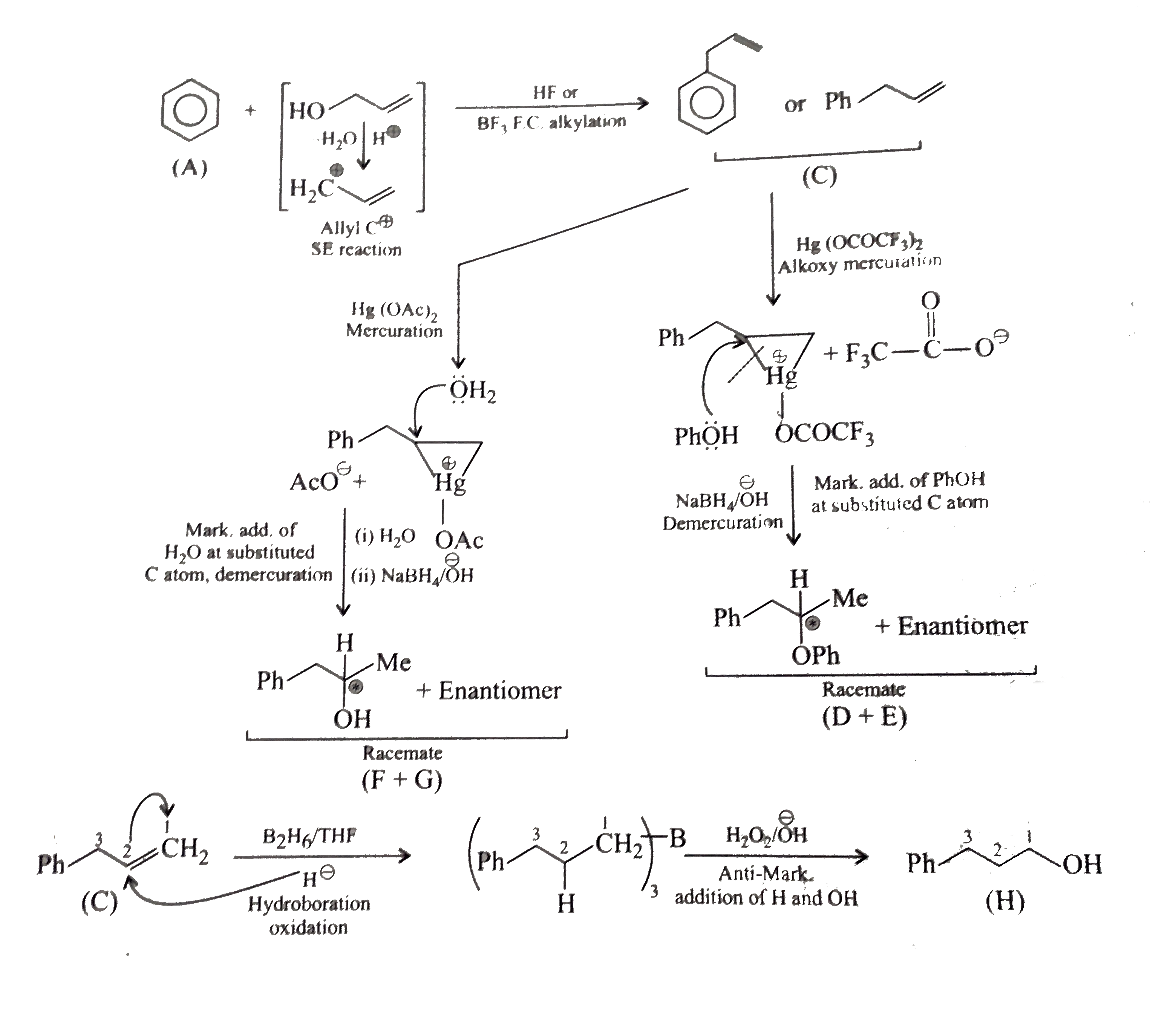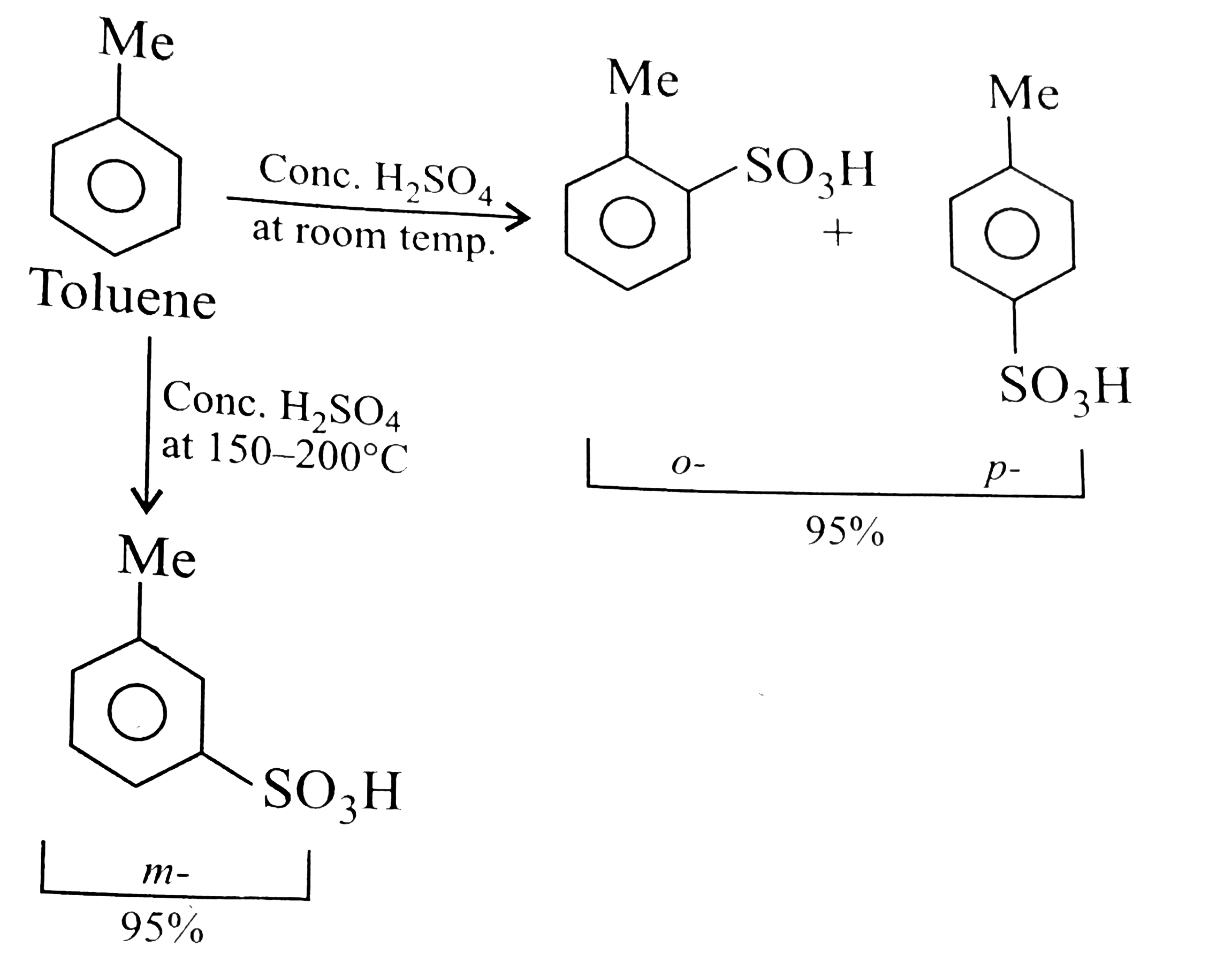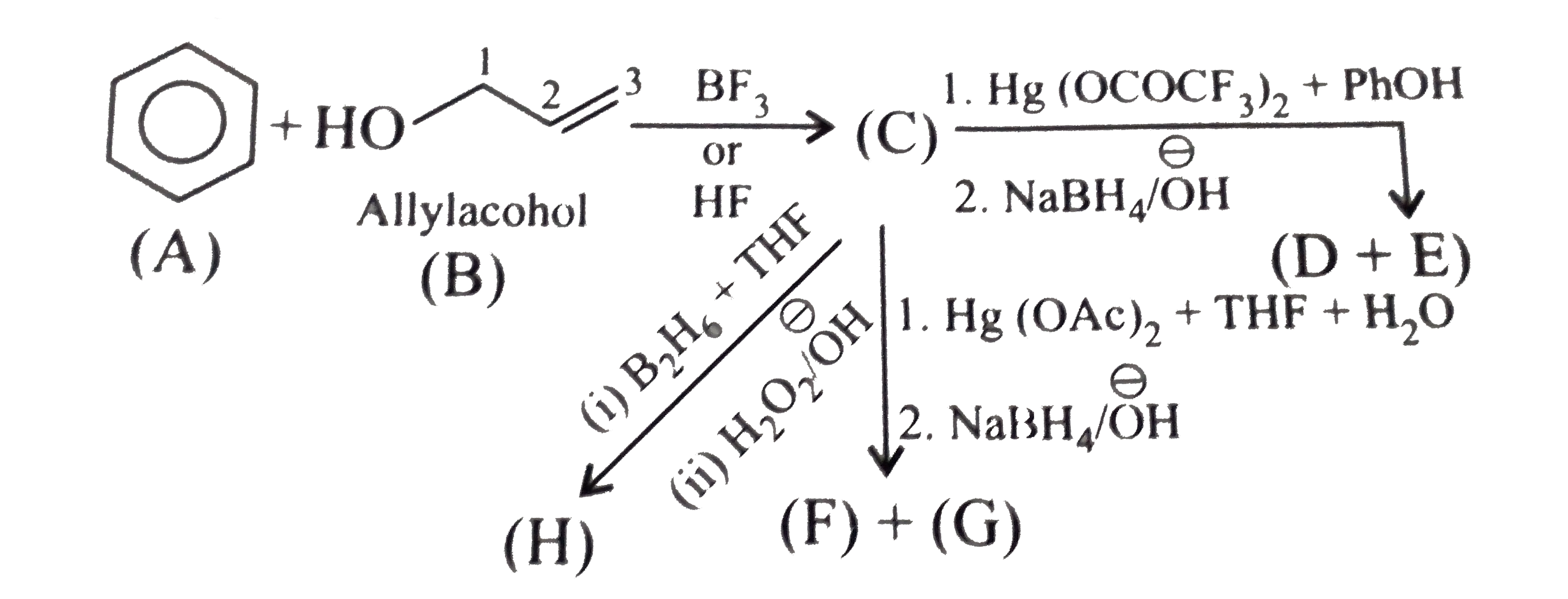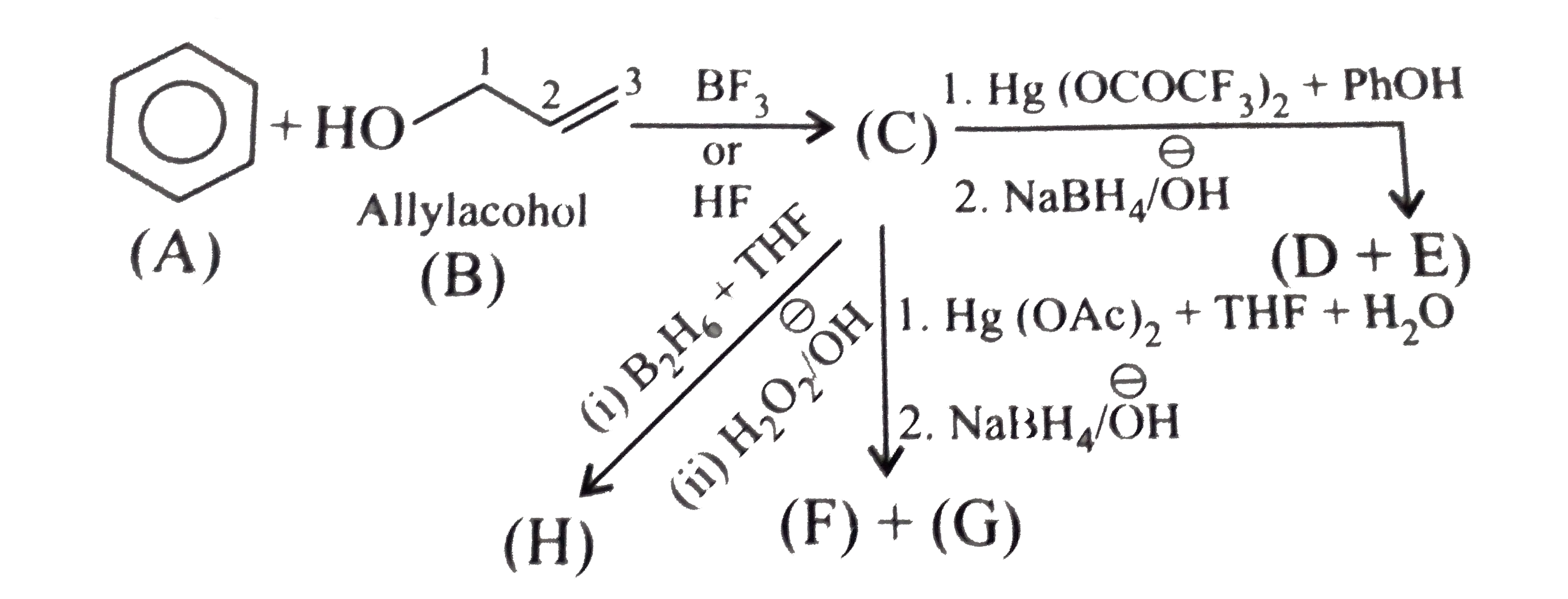
The reaction (C ) to (D) and (E ) is called alkoxy mercuration-demercuration reaction. Which of the following statement, is wrong about the reaction ?
A
In the first step, alkoxy meruration occues, i.e., Hg(Oac)2 or Hg(OCOCF3)2 and ROH/ArOH add to the double bond.
B
In the second step, demecuration occurs, i.e., NaBH4 reduces, HgOAc or Hg(OCOCF3) group to hydrogen.
C
The net reaction is addition of ROH/ArOH accor-ding to Markovnikov's rule.
D
Rearrangement takes place.
Video Solution
Text Solution
The correct Answer is:D
|
Topper's Solved these Questions
- ALCOHOL,PHENOL AND ETHERSBOOK - CENGAGE CHEMISTRY ENGLISHCHAPTER - ALCOHOL,PHENOL AND ETHERSEXERCISE - Exercises Multiple Correct
24 Videos
- ALCOHOL,PHENOL AND ETHERSBOOK - CENGAGE CHEMISTRY ENGLISHCHAPTER - ALCOHOL,PHENOL AND ETHERSEXERCISE - Exercises Single Correct
72 Videos
- ALCOHOL,PHENOL AND ETHERSBOOK - CENGAGE CHEMISTRY ENGLISHCHAPTER - ALCOHOL,PHENOL AND ETHERSEXERCISE - Exercises Concept Application
33 Videos
- ALIPHATIC AND AROMATIC ALDEHYDES AND KETONESBOOK - CENGAGE CHEMISTRY ENGLISHCHAPTER - ALIPHATIC AND AROMATIC ALDEHYDES AND KETONESEXERCISE - Archives Subjective
26 Videos
Similar Questions
Knowledge Check
Which of the following statements is not correct about order of a reaction ?
AThe order of a reaction can be a fractional number.BOrder of a reaction is experimentally determined quantityCOrder of a reaction is always equal to the sum of the stoichiometric coefficients of reactants in the balanced chemical equation for a reaction.DThe order of a reaction is the sum of the powers of molar concentration of the reactants in the rate law expression.Which of the following statements is not correct about order of a reaction ?
AThe order of a reaction can be a fractional number.BOrder of a reaction is experimentally determined quantityCOrder of a reaction is always equal to the sum of the stoichiometric coefficients of reactants in the balanced chemical equation for a reaction.DThe order of a reaction is the sum of the powers of molar concentration of the reactants in the rate law expression.Which of the following statements is not correct about order of a reaction ?
AThe order of a reaction can be a fractional number.BOrder of a reaction is experimentally determined quantityCOrder of a reaction is always equal to the sum of the stoichiometric coefficients of reactants in the balanced chemical equation for a reaction.DThe order of a reaction is the sum of the powers of molar concentration of the reactants in the rate law expression.
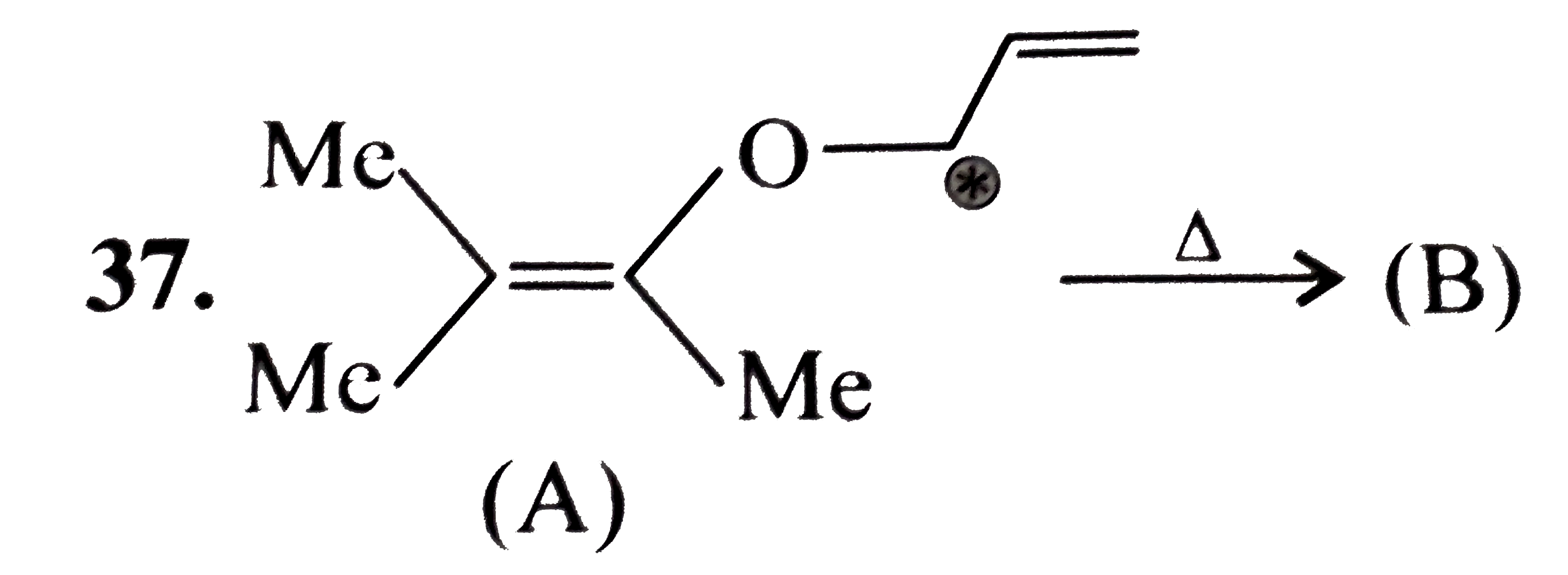
Which of the following statements are correct about the above reaction ?
View Solution
Which of the folloiwng statements is correct about the above reaction?
View SolutionWhich of the following staements are correct about ElcB reaction ?
View SolutionWhich of the following statement is not correct about order of a reaction ?
View SolutionWhich of the following statement is not correct about order of a reaction ?
View Solution

